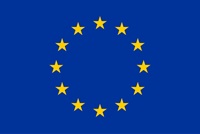POCITYF project raises stakes for positive energy city transformation
09 Oct 2019
The overall aim is to help cities deliver positive energy districts while respecting their mixed urban settings that often include listed buildings of historical interest and other cultural heritage features
A new smart city EU-funded project, POCITYF, is set to transform our historical and cultural cities into more efficient, healthy, sustainable living environments with "positive energy districts". Led by EDP, the project kicks off on 9 October and involves 46 partners, including RINA.
At the heart of this new project lie “Positive Energy Blocks/Districts”, which are groups of buildings that actively manage their energy consumption and the energy flow between them and the wider energy system. Positive energy districts have an annual positive energy balance.
Kicking off on 9 October in Évora, Portugal, POCITYF (A Positive Energy CITY Transformation Framework) will combine these positive energy blocks with grid flexibility, e-mobility, innovative ICT technologies and citizen engagement strategies. The overall aim is to help cities deliver positive energy districts while respecting their mixed urban settings that often include listed buildings of historical interest and other cultural heritage features.
Project coordinator João Maciel, from EDP LABELEC, explains: "POCITYF is different because it includes a strong focus on heritage areas, tackling the untapped barriers that accrue from legal and regulatory restrictions against the installation of conventional solutions that historical and protected sites currently struggle with. It is a project from which many other historical cities can draw inspiration from."
Activities will be carried out in two lead cities or "Lighthouse" cities: Évora (Portugal) and Alkmaar (Netherlands). Six other cities, known as fellow cities, will seek to replicate the works: Granada (Spain), Bari (Italy), Celje (Slovenia), Ujpest (Hungary), Ioannina (Greece) and Hvidovre (Denmark). Beyond this project group, other cities are invited to join the POCITYF network to share experience and learn from the project's findings.
The two Lighthouse cities will benefit from solutions divided into four "Energy Transition Tracks":
- Innovative solutions for positive buildings and districts
- Peer to peer energy management and storage solutions for grid flexibility
- e-mobility integration into smart grid and city planning
- Citizen-driven innovation in co-creating smart city solutions
"Heading up POCITYF agenda, there’s the goal to carve this upcoming citywide sustainable landscape, by delivering the pioneering concept of Positive Energy Blocks in the cities of Évora and Alkmaar," adds João Maciel. The cross-domain and innovative repository of solutions will also be partially replicated in six other cities, spread over the continent, boosting project impact."
Overall, POCITYF will therefore add layers of "smartness" to key city infrastructures, technologies and services, creating new possibilities to make cities safer, greener and more responsive to the needs of their citizens, businesses and other organisations.
“Built on the perpetual tension between the heritage wealth of the past and the challenging look of the future, stands a city with a strong identity and cultural mark, classified as a World Heritage Site by UNESCO and ready to assume the responsibility of being European Capital of Culture in 2027. It is in this context that we incorporate the POCITYF project, essential in the smart differentiation strategy that has made Évora a resilient, adaptive city, eager for new and vibrant challenges.” Mr. Alexandre Varela, City Councillor of Évora.
“The Municipality of Alkmaar is honored and proud to become a Lighthouse city in the Horizon2020 POCITYF project. Alkmaar isn't just a city with a strong cultural and historical heritage; it is also an enterprising, modern city with a strong knowledge-driven economy, based on sustainability, tourism, healthcare, entrepreneurship and innovation. The cooperation between partners both in Europe as well as locally in The Netherlands will push the innovation on positive energy applications forward. Working together in this project and exchanging knowledge and experiences will make the world a better place.” Mr. Peter van den Dries, program manager of Alkmaar Municipality
POCITYF is a Smart City project funded under the European Union’s Horizon 2020 research and innovation programme. It will last for 60 months with an overall budget of €22.5m (of which the EU contribution amounts to €20m)
This news is based on a press release, download it now to know more about the project
